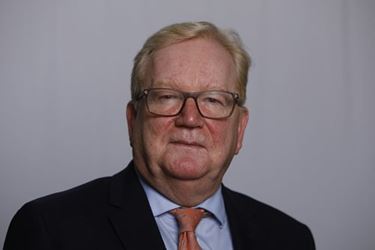Citizen Participation and Public Petitions Committee
The Committee focuses on:
- all public petitions submitted to the Parliament and determines if they meet the rules
- deciding what actions should be taken for all public petitions which meet the rules
- reviewing the operation of the public petitions system
- any other forms of public engagement the committee decides to undertake
View current and previous petitions on the public petitions system
Next meeting of the committee
Details of the next meeting are not available yet.
Dates for future meetings
The Citizen Participation and Public Petitions Committee usually meets fortnightly on Wednesdays.
Previous meetings of the committee
Work of the Committee
Current work
Official Reports of meetings
Official Reports of meetings
Citizen Participation and Public Petitions Committee
Meeting date: Wednesday, February 11, 2026
Continued Petitions, New Petitions
Citizen Participation and Public Petitions Committee
Meeting date: Wednesday, January 28, 2026
Decision on Taking Business in Private, Continued Petitions
Citizen Participation and Public Petitions Committee
Meeting date: Wednesday, January 21, 2026
Continued Petitions, New Petitions
Citizen Participation and Public Petitions Committee
Meeting date: Wednesday, January 14, 2026
Decision on Taking Business in Private, Energy, Continued Petitions, New Petitions, Correction
Citizen Participation and Public Petitions Committee
Meeting date: Wednesday, December 10, 2025
Decision on Taking Business in Private, Continued Petitions, New Petitions
Citizen Participation and Public Petitions Committee
Meeting date: Wednesday, November 26, 2025
Decision on Taking Business in Private, Continued Petitions, New Petitions
Citizen Participation and Public Petitions Committee
Meeting date: Wednesday, November 12, 2025
Decision on Taking Business in Private, Emergency Cardiac Care, Continued Petitions, New Petitions
Citizen Participation and Public Petitions Committee
Meeting date: Wednesday, October 29, 2025
Decision on Taking Business in Private, Emergency Cardiac Care, Continued Petitions, New Petitions
Citizen Participation and Public Petitions Committee
Meeting date: Wednesday, October 8, 2025
Continued Petitions, New Petitions, Continued Petitions, New Petitions
Citizen Participation and Public Petitions Committee
Meeting date: Wednesday, September 24, 2025
Decision on Taking Business in Private, Healthcare, Continued Petitions, New Petitions
Reports
Committee reports
Annual report of the Citizen Participation and Public Petitions Committee 2024-2025
Published: 29 May 2025
Report by the Citizen Participation and Public Petitions Committee outlining its work during the Parliamentary year from 13 May 2024 to 12 May 2025.
Published: 22 May 2025
Report by the Citizen Participation and Public Petitions Committee on embedding deliberative democracy in the work of the Scottish Parliament.
Inquiry into the A9 Dualling Programme
Published: 01 November 2024
Report by the Citizen Participation and Public Petitions Committee on its inquiry into the A9 Dualling Programme
Committee Remit
To consider public petitions addressed to the Parliament in accordance with these Rules (and any additional matter added under Rule 6.1.5A) and, in particular, to—
- decide in a case of dispute whether a petition is admissible;
- decide what action should be taken upon an admissible public petition; and
- keep under review the operation of the petitions system.
- consider and report on public policy or undertake post-legislative scrutiny through the use of deliberative democracy, Citizen’s Assemblies or other forms of participative engagement.
Current Members

Jackson Carlaw

David Torrance

Fergus Ewing

Maurice Golden

Davy Russell
Full details of committee membership, including substitute and previous members